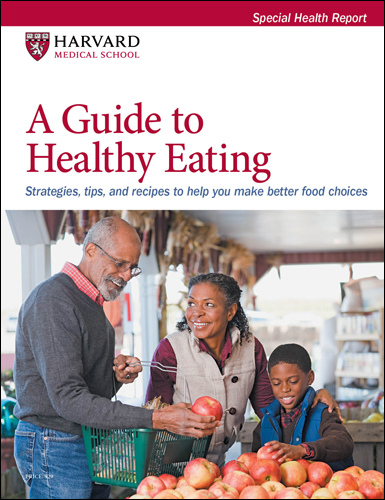How stimulants may affect your heart
Beware that over-the-counter supplements may contain hidden, potentially harmful stimulants.

Prescriptions for stimulants have risen sharply over the past two decades. Commonly used to treat attention deficit hyperactivity disorder (ADHD) in children, these drugs include amphetamines (Adderall, Adzenys) and methylphenidate (Ritalin, Concerta). But increasingly, stimulants are being prescribed to older adults. New research suggests they may cause a short-term spike in the risk of heart attacks, strokes, and heart rhythm disorders (arrhythmias).
The findings make sense, since stimulants cause the heart to beat faster and with greater force, both of which can raise blood pressure, says Dr. Pieter Cohen, an associate professor of medicine at Harvard Medical School and an internist at Harvard-affiliated Cambridge Health Alliance. "These well-known side effects may be more worrisome in older people, who are more vulnerable to heart problems than younger people are," he says.
Serious heart problems?
The study, published Oct. 25, 2021, in JAMA Network Open, included more than 6,400 people ages 66 and older who started a stimulant prescription between 2017 and 2019. Researchers then compared each of them with four adults similar in age and health status who weren't taking a stimulant. On average, stimulant users were 40% more likely to end up in the emergency room or hospital with a serious heart complication within 30 days of starting the drug.
However, these types of observational studies can't prove cause and effect, Dr. Cohen cautions. And over the longer term (six to 12 months), people taking stimulants did not experience heightened heart-related risks compared with the nonusers. Still, the findings highlight issues relevant to older adults and anyone at risk of heart disease.
One is a reminder that stimulants aren't found only in prescription drugs. They also may be hiding in popular dietary supplements, including those that promise weight loss, muscle strength and endurance, and better cognition (see "Hidden dangers: Stimulants in supplements").
The other is to carefully consider whether the potential perks of taking a stimulant — or any other drug or supplement with no proven longevity benefit — is worth even a small risk of potentially life-threatening cardiovascular harm, says Dr. Cohen. The rise in stimulant prescriptions in older adults may reflect greater awareness of ADHD in adults. The drugs are also prescribed "off-label" for problems such as fatigue, thinking problems, or depression. But there's no good evidence that stimulants are even effective for such issues, says Dr. Cohen.
Hidden dangers: Stimulants in supplementsWeight loss and sports supplements may contain prohibited, unlisted, and potentially dangerous stimulants, according to a 2021 study in Clinical Toxicology co-authored by Dr. Pieter Cohen, an internist at Harvard-affiliated Cambridge Health Alliance. He and his colleagues tested 17 brands of supplements containing deterenol, a synthetic stimulant that is not approved by the FDA and has never been tested in humans. Side effects include nausea, vomiting, palpitations, chest pain, and cardiac arrest. In addition to deterenol, they found eight additional stimulants in the supplements. More than half the brands contained two or more prohibited, harmful stimulants. As is true for many supplements, what was actually in the bottles rarely matched the ingredients listed on the label. "Because they're regulated as food, dietary supplements are exempt from FDA approval, so companies that make supplements aren't required to test their products for efficacy or safety," explains Dr. Cohen. People can easily buy supplements in pharmacies, nutrition stores, and online. Anyone who takes weight loss or sports supplements may unknowingly ingest stimulants, possibly risking their cardiovascular health. Products that claim to improve brain health or cognition may also contain untested stimulants, Dr. Cohen adds. |
The bottom line
If you're over 65, and especially if you have high blood pressure or other risk factors for heart disease, think twice before taking a prescription stimulant, he recommends. But at least these medications have undergone a robust FDA approval process to be legally prescribed in the United States. That's not the case with dietary supplements. It's fine to take a supplement if you're trying to replenish a specific vitamin or mineral, says Dr. Cohen. "But I would definitely stay away from any supplement that promises a near-term health benefit such as weight loss, muscle building, or memory enhancement," he says.
Image: © PIKSEL/Getty Images
About the Author

Julie Corliss, Executive Editor, Harvard Heart Letter
Disclaimer:
As a service to our readers, Harvard Health Publishing provides access to our library of archived content. Please note the date of last review or update on all articles.
No content on this site, regardless of date, should ever be used as a substitute for direct medical advice from your doctor or other qualified clinician.
















